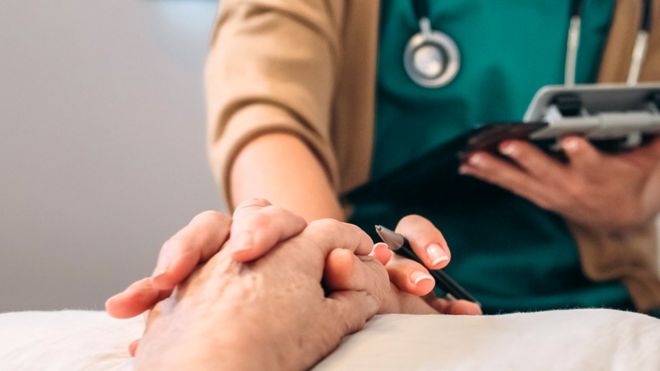 Debates about the ethics of euthanasia often centre on the issue of patient autonomy. One common argument made by proponents of legalised euthanasia is that patients should have the right to choose when and how they die, particularly when they are terminally ill and suffering intolerably.
Debates about the ethics of euthanasia often centre on the issue of patient autonomy. One common argument made by proponents of legalised euthanasia is that patients should have the right to choose when and how they die, particularly when they are terminally ill and suffering intolerably.
Yet perhaps there more to the euthanasia debate than just individual autonomy. A new article in ABC Religion and Ethics presents a novel socio-economic critique of euthanasia rhetoric, analysing the global campaign for assisted dying from the perspective of contemporary economic theory.
St Vincent’s Health Australia ethicist Daniel Fleming argues that the push to legalise euthanasia is symptomatic of an ideology known as neo-liberalism. While the precise meaning of the term is debated, neo-liberalism is usually used to denote an approach to economic and social policy -- popular in the late 20th Century -- that seeks to profoundly augment consumer choice and market freedom. It has been criticised for reducing the human person to a self-regulating economic actor with no connection to community or history.
Fleming argues that this mentality is reflected in the way in which people use terms like ‘compassion’ in the euthanasia debate. Compassion, in the context of arguments for euthanasia, is really just a byword for a desire to augment the autonomy of individuals at the end of life -- as if the way in which we die were just one more market choice. Fleming writes,
“...According to [the neoliberal narrative], physical suffering is less a concern than the suffering incurred by the dependency that fragility and illness entails, and its consequent loss of autonomy, self-regulation and self-surveillance. To be compassionate according to the neoliberal narrative is to suffer with these particular concerns. The commitment following such suffering with is to open up hitherto unavailable options for the exercise of autonomy in order to reinstate what has been lost, even to the extent of that ultimate expression of individual choice: to end one's life.”
Fleming analyses assisted suicide statistics from Oregon, and comes up with some interesting conclusions. It appears that the quintessential neoliberal actor -- a white, well-educated male -- is exceedingly more likely to request euthanasia than a member of a minority group:
“...on balance white people are over 35 times more likely to access this option at the end of their lives compared to the African American population…[those with a university] degree or higher...are 36 per cent more likely to access VAD than the rest of the population”.
It’s a long article, but well worth the read.


